News & Stories
2025
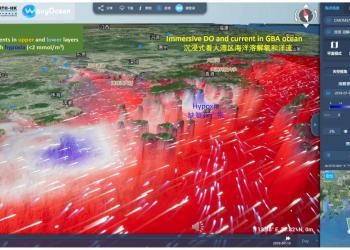
News
HKUST Unveils WavyOcean 2.0: A Next-Generation Ocean Platform for Marine Research and Sustainability
The Hong Kong University of Science and Technology (HKUST) is pleased to announce the launch of WavyOcean 2.0, an immersive digital twin platform of regional earth system. This upgraded platform deeply integrates digital technologies with innovative research in Earth system, creating the first "dynamic digital mirror" for the Guangdong-Hong Kong-Macau Greater Bay Area (GBA) and China's coastal regions. With these enhancement, WavyOcean 2.0 offers the latest data on ocean currents, marine ecology, atmospheric conditions, and the distribution of rivers and pollutants in terrestrial watersheds, along with comprehensive data analysis tools and immersive visualization interactive functions.
News
HKUST Researchers Dominate RGC Funding Awards with Record Breaking Success
The Hong Kong University of Science and Technology (HKUST) has set a new institutional record by securing over HK$279 million for six research projects across all three flagship schemes of the Research Grants Council (RGC) under the University Grants Committee – the highest share in terms of projects funded among universities, cementing its leadership in competitive research funding.
AoE and TRS Sweep:
HKUST captured 4 of 9 awarded projects (nearly 45%) in the prestigious Areas of Excellence (AoE) and Theme-based Research Scheme (TRS). These projects target critical global challenges including climate resilience, disease prevention, and sustainable technology.
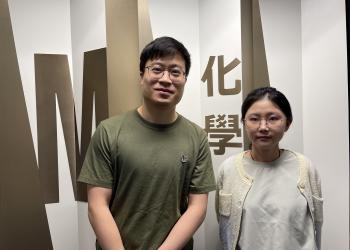
News
HKUST Chemists Discover a “Super” Photoreductant to Leap Forward in Photocatalysis
Chemists at the School of Science of the Hong Kong University of Science and Technology (HKUST) have recently made a significant breakthrough in photocatalysis by unveiling a “super” photoreductant, marking a major advancement in organic synthesis.
Quantum dots (QDs) hold great promise as photocatalysts for promoting photoredox chemistry, however, their application in photocatalytic organic transformations has lagged behind that of small molecule photosensitizers due to the limited understanding of their photophysics. While various studies have explored the generation of hot electrons from QDs as a strategy to enhance photoreduction efficiencies, achieving effective hot-electron generation under mild conditions has posed a significant challenge.
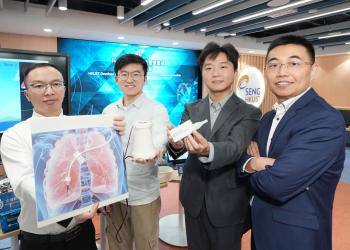
Stories
Fusing AI and Robotics: The Future of Smarter Healthcare is Within Reach
Global healthcare is facing a wide range of challenges, including ageing populations and an increase in chronic diseases, which are putting immense strain on healthcare systems. The demand for advanced medical technologies like less invasive and more precise surgical tools has never been more urgent. The situation prompted a global wave of innovation in micro-scale medical robotics designed to assist clinicians with unprecedented accuracy and effectiveness.
This ambition drives Professor SHEN Yajing and his research team at The Hong Kong University of Science and Technology (HKUST)’s Department of Electronic and Computer Engineering on their journey toward medical innovation. Integrating artificial intelligence (AI) and robotics technologies, they have recently developed three pioneering smart medical devices for health monitoring, surgical assistance, and rehabilitation, ushering in a new era of smart healthcare.
Stories
Navigating the Skies: HKUST’s Game-Changing Digital Twin
For many, sticking to familiar paths feels safe and comfortable. But not for the trailblazers at the Hong Kong University of Science and Technology (HKUST). They are not just thinking outside the box—they are pushing boundaries and aiming for the skies—quite literally.
At HKUST’s Low Altitude Economy Research Center (LAERC), researchers are revolutionizing the future of urban airspace to support HKSAR Government’s policy in promoting the low-altitude economy. Their mission? Harnessing the groundbreaking Digital Twin technology—a virtual replica of the physical world—to transform drone management, airspace control, and infrastructure monitoring.
Spearheaded by Professor Jack CHENG of the Department of Civil and Environmental Engineering, this innovative technology is set to unlock unprecedented potential for the low-altitude economy.
News
Seven HKUST Projects Secure Funding in RAISe+ Second Round
The Hong Kong University of Science and Technology (HKUST) has shone in the second round of Research, Academic and Industry Sectors One-plus (RAISe+) Scheme launched by Innovation and Technology Commission’s (ITC), securing grants for seven teams – the highest number among local institutions.
The seven funded projects encompass a diverse array of innovative research and development efforts. Three projects focus on health and medical innovation, addressing areas spanning diagnostics, medical treatment and gene therapy. Three others focus on AI chips, semiconductors and their materials, while the remaining one explores novel displays and optoelectronic technology.
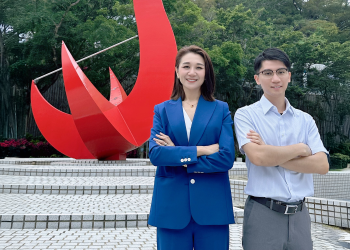
News
HKUST Study Warns of Accelerating Climate Threat: “Precipitation Whiplashes” Could Strike as Early as 2028
A recent study by The Hong Kong University of Science and Technology (HKUST) reveals a looming climate crisis: the world could face heightened risks of “precipitation whiplashes” – violent swings between extreme droughts and floods – as early as 2028. This research, led by Prof. LU Mengqian and Dr. CHENG Tat-Fan of HKUST’s Department of Civil and Environmental Engineering, attributes the escalating risk to climate-driven intensification of Madden-Julian Oscillation (MJO) events. This large-scale pattern of tropical intraseasonal climate variability is now propagating faster due to global warming.
The findings, published in the prestigious journal Nature Communications, pave the way for improved subseasonal forecasts, i.e., two to six weeks in advance, enabling timely decision-making in disaster preparedness and management, and helping to enhance food and water security, energy management, and infrastructure resilience.
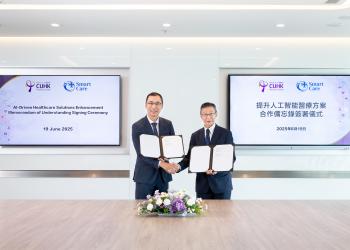
News
HKUST-Nurtured Startup SmartCare and CUHK Medical Centre Join Forces to Enhance AI-Driven Healthcare Solutions
SmartCare Technology Co. Limited (SmartCare), a Healthtech innovator nurtured by The Hong Kong University of Science and Technology (HKUST) joins hands with CUHK Medical Centre (CUHKMC) to announce a significant partnership aimed at advancing healthcare delivery through innovative artificial intelligence (AI) solutions. The Memorandum of Understanding (MoU) signing ceremony marks a strategic commitment to co-develop AI technology solutions for healthcare settings.
This collaboration will harness SmartCare’s expertise in healthcare AI technology and CUHKMC’s commitment to providing exceptional healthcare services. The partnership aims to implement advanced AI technology to enhance clinical workflows, improve patient care, and streamline operational efficiency within CUHKMC’s facilities.








